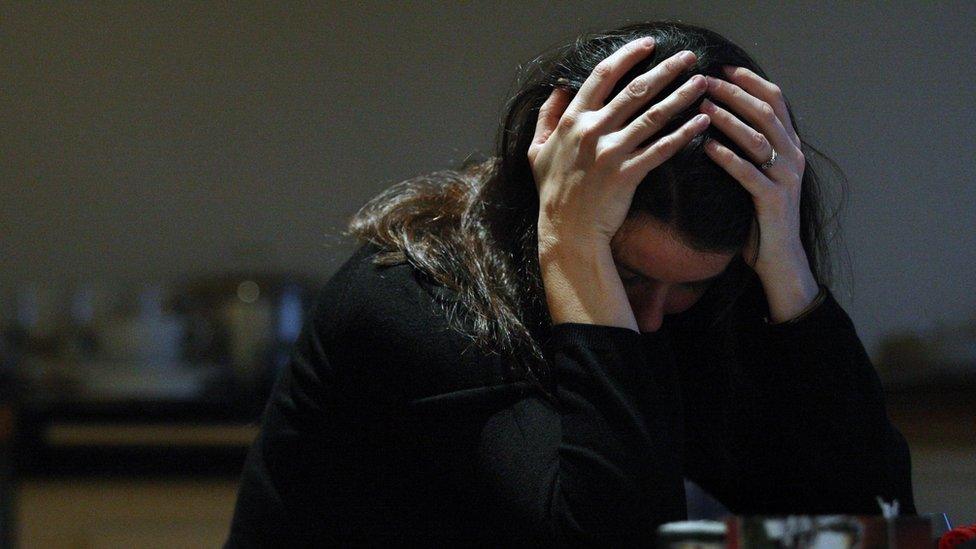CPS 'let down' victims with 'inadequate' communication
- Published

Victims of crime are "let down" by poor communication from the Crown Prosecution Service, a watchdog claims.
The CPS Inspectorate's report said the CPS was slow to contact victims in almost half of the cases it examined and sent letters that "lacked empathy".
In a majority of cases there was also no evidence that victims' views were taken into account on key decisions.
The CPS said its own data showed a "markedly different" picture to the "small sample" used in the report.
Her Majesty's Crown Prosecution Service Inspectorate's communicating with victims report, external looked at the speed and quality of the CPS's communication with victims of crime.
As part of its investigation, inspectors visited six of the 13 CPS areas in England and Wales, during a three-week period. They examined 162 case and complaint files and interviewed CPS staff, police and crime commissioners and partner organisations such as Citizens Advice.

Problems identified from the report survey:
Only a few areas visited had enough CPS staff to reach recommended levels, which sometimes resulted in delays communicating with victims
Templates for letters to victims were used "prescriptively" rather than as "prompts", which meant "too many letters lack empathy". "No two victims are the same and should not be treated as such," the report said
Reasons for decisions to discontinue a case, or substantially alter charges against a defendant, were not sent quickly enough in 43% of cases
In nearly 72% of cases there was "no evidence" victims views were taken into account before these types of decisions are made
In more than half of cases, reasons for the above decisions were not "clearly explained"
In almost 96% of letters to domestic abuse victims there was "no evidence" they were provided with details of sources of support, and 19% of letters failed to tell the victim of their right to seek a review of any decision not to prosecute
There was "no improvement" in complaint-handling since prior reviews in 2009 and 2013, and problems persist including "defensiveness when responding to the complaint, not acknowledging when complaints had merit, and not apologising for failings"
Only 49% of victims cross-examined in a trial felt they were given enough support and prosecutors "struggled" to meet victims and witnesses before they were called to give evidence

The Inspectorate said the CPS should be more consistent in the quality of their letters and how quickly they send them to victims, and added the CPS and police should agree on their roles in communicating case outcomes to victims to avoid sending confusing or duplicated information.
They also stated the CPS should "implement an effective process" for notifying victim liaison units when charges are altered in a case, so that staff can inform victims.
Inspectors did say the CPS was facing increased pressure due to staff cuts, and the report also highlighted that the organisation had taken steps to improve service, including drafting new guidance about speaking to witnesses at court to improve the quality of service.

But the CPS criticised the small sample used in the report and said their own figures showed they had improved service.
Chief crown prosecutor Martin Goldman said the CPS is "committed to delivering a high quality service to victims and witnesses and supporting them throughout their case".
He said: "Last year a survey showed that two-thirds of victims and three-quarters of witnesses were satisfied or very satisfied with the service they received from the CPS.
"80% of letters to victims due to reach them within one day meet the target, and this increases to 89% of letters due to reach victims within five days."
- Published27 January 2015

- Published27 January 2015
